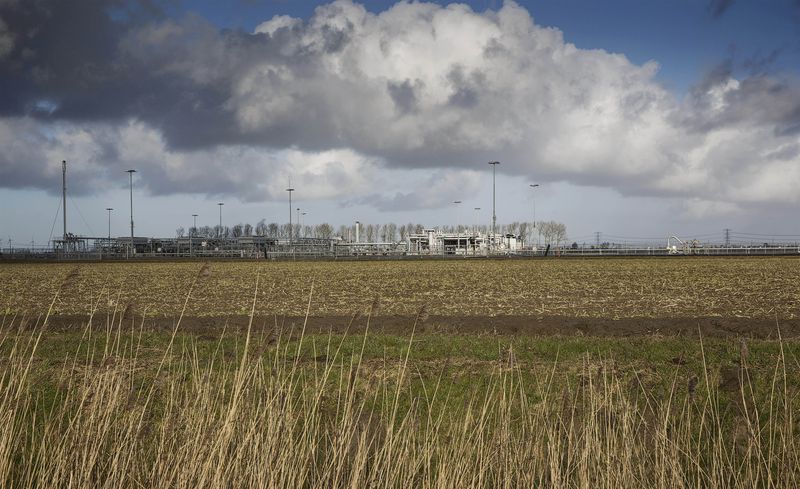AMSTERDAM (Reuters) -The Dutch Senate on Tuesday approved a law to permanently close the Groningen gas field, following the government's promise that production will never be resumed to limit seismic risks in the region.
Normal gas production at Groningen in the north of the Netherlands ended last October after years of output cuts to limit seismic activity linked to decades of extraction, that has damaged thousands of buildings.
The gas field, once one of Europe's main suppliers, was available for limited production during a cold snap in recent months, but the government has proposed a law that would close the field entirely by Oct. 1.
The law will leave huge reserves in the ground and has been criticized by some politicians and gas industry advocates, who argue doing so could jeopardize the country's security of supply.
The Senate responded earlier this month by unexpectedly postponing the final vote on the law, as several factions said they needed more guarantees on supply.
That move angered the government, as Mining Minister Hans Vijlbrief - who had been a strong advocate for the shutdown - said he would resign if it would lead to a long delay and ongoing seismic uncertainty for people living in the region.
Without the law, gas production could resume.
The field is operated by gas company NAM, a joint venture of Shell (LON:RDSa) and ExxonMobil (NYSE:XOM), who have asked an arbitration court to decide whether the Dutch state should compensate them for the ending of gas production at Groningen.

Gas profits have delivered an estimated 363 billion euros ($385 billion) to the Dutch treasury since production started in the 1960s, while Shell and Exxon's profit from Groningen was around 66 billion euros during that period.
($1 = 0.9419 euros)